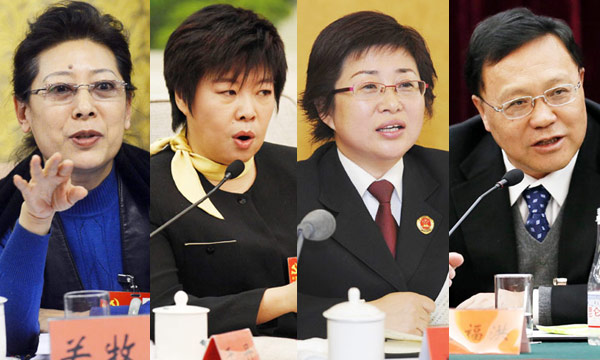Party place
By David Bartram (China Daily European Weekly)
Updated: 2011-06-24 11:04
|
 Top: Farmers in Baofeng, Hebei, take part in steel making during the Great Leap Forward.
Above: Deng Xiaoping during his trip to southern China in 1992, a landmark visit considered the second wave of opening-up.
|
"Whatever happens in China has global implications now - often instantly," says Richard McGregor, author of The Party, a study of the inner workings of the CPC. "Any country the size of China is going to have an impact that the world has to accommodate.
"There is a lot of debate in China as to what will come next: How China invests around the world, how the country will continue to reform," says McGregor.
How the Party has changed in the 21st century, and how it will continue to adapt to the demands of governing a modern market economy is central to any debate on the future of China. Martin Schulz, chair of the Group of the Progressive Alliance of Socialists and Democrats in the European Parliament, has seen the CPC gradually move toward other global models of reform, while maintaining a distinctly Chinese approach.
"My impression is that the CPC is becoming more open. Of course, there are some differences between European social democracies and the CPC. The CPC is trying to develop a very specific Chinese model under very specific circumstances," says Schulz.
"The Party has been adapting its role at the beginning of the 21st century to the needs of the modernized society of China of today. I think there are very interesting and encouraging developments in the CPC."
Reforms, particularly those overseen by Deng Xiaoping and then Jiang Zemin, have gone a long way to turning the CPC into a party as interested in overseeing the development of private industry in China, as one managing State enterprise.

Top News
Xi emphasizes adherence to CPC Congress spirit
Top legislator urges implementation of congress spirit
Moderately prosperous China brings chances to world
Video







